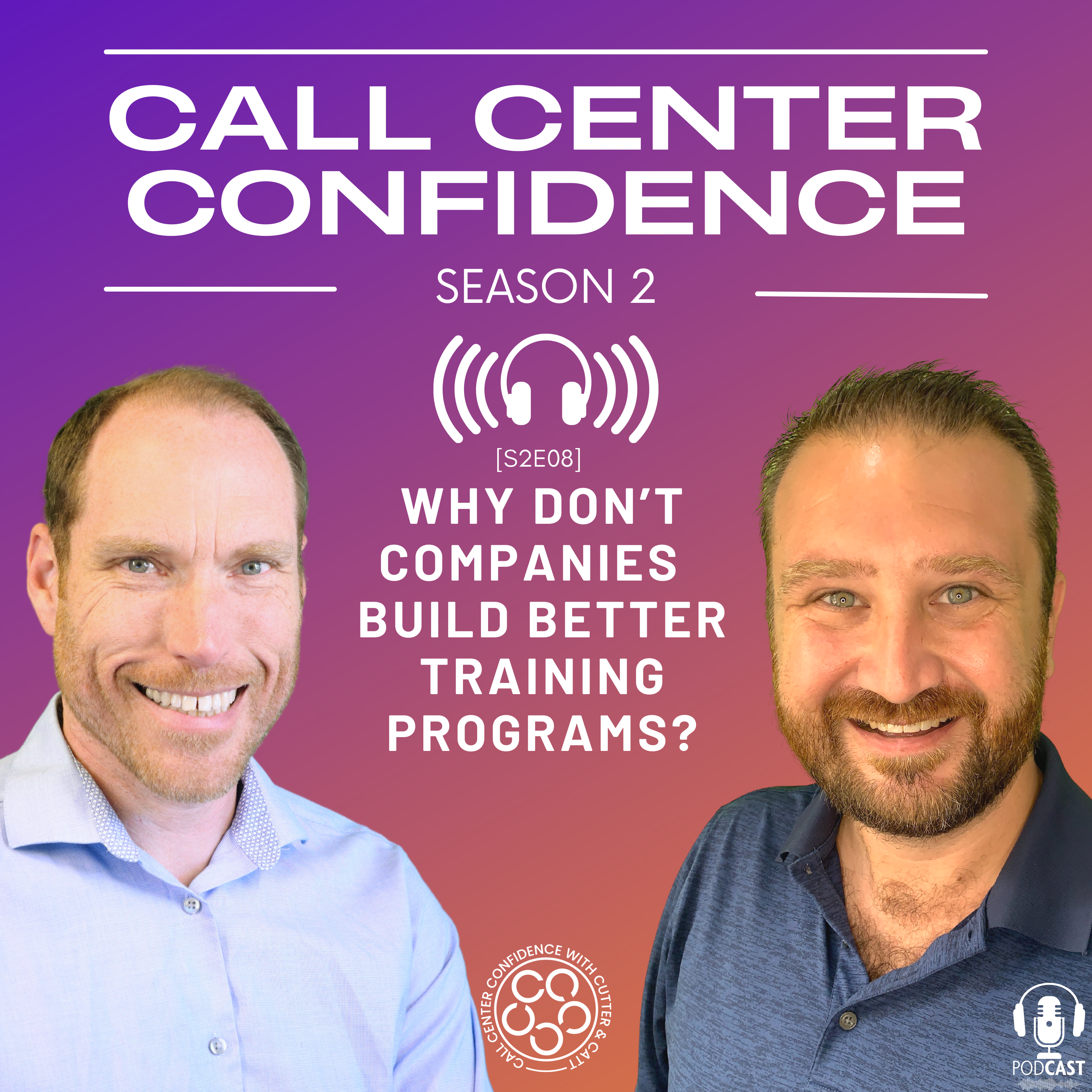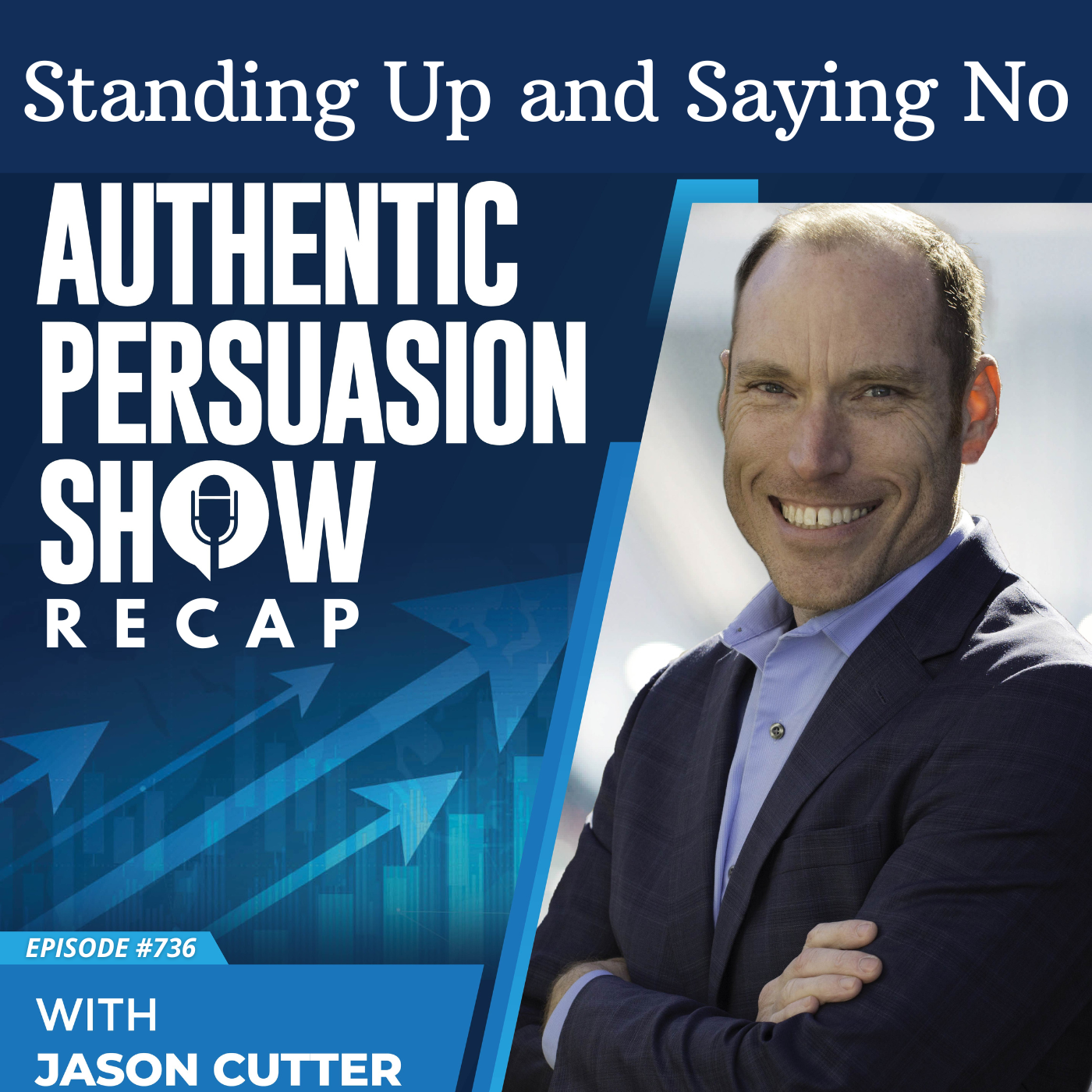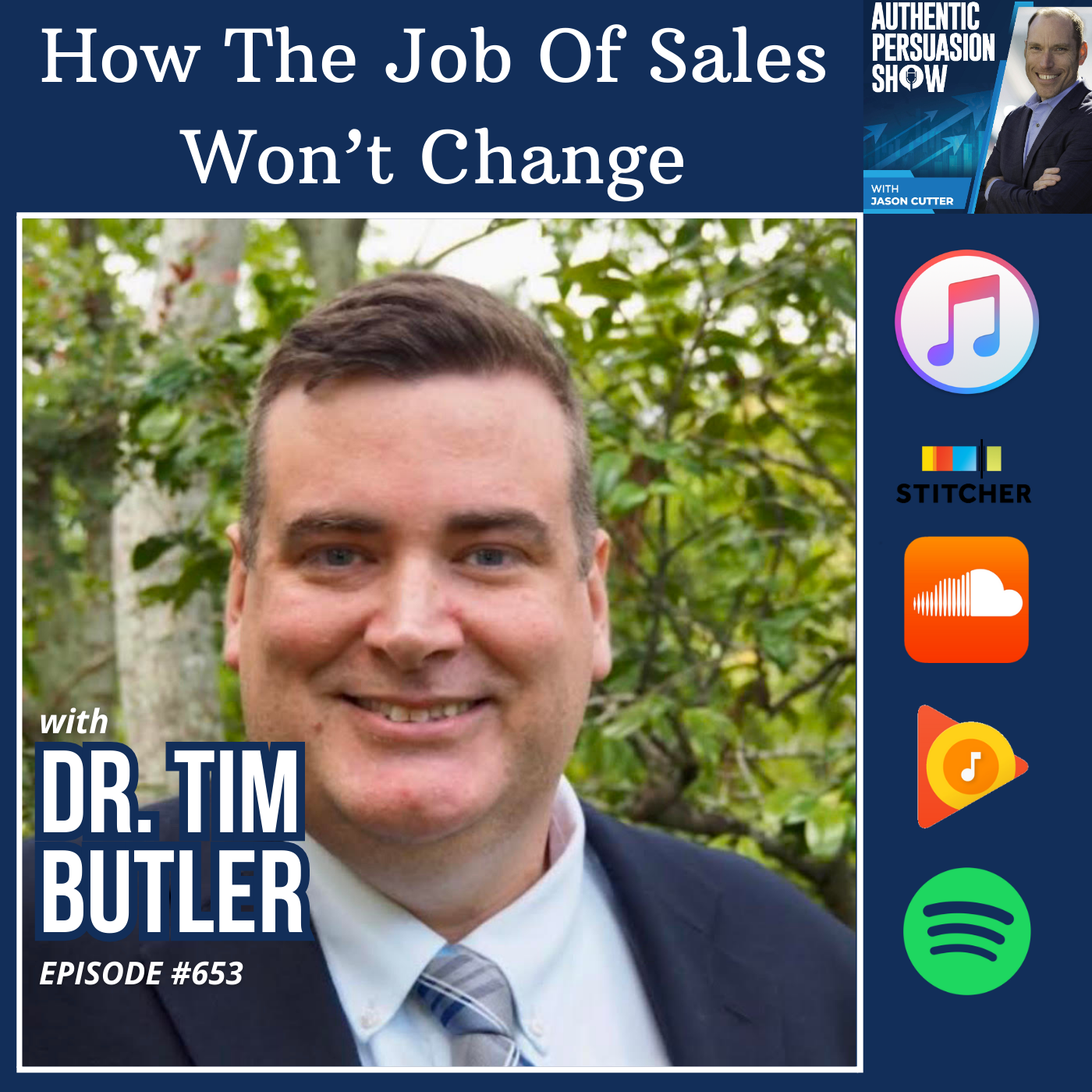Show Notes
My guest for this week is Eric Malka. He founded the Art of Shaving franchise and has a fantastic view of the sales experience in terms of customer-first. This is a must-listen 4-part series for owners, managers, and sales professionals.
In Part 1, Eric and I talk about:
- His obsession with service
- The inverted pyramid of who the most important person is in an organization
- Always focus on being true to who you are and clear on who you serve
Download The Power of Authentic Persuasion ebook
Enroll in the Authentic Persuasion Online Course
Connect with Jason on LinkedIn
Connect with Eric on LinkedIn
Eric’s Info:
Eric Malka is a renowned serial entrepreneur, business operator and published author with more than 30 years’ experience in the luxury Branded Consumer-Packaged Goods arena.
As co-founder and former CEO of The Art of Shaving he is one of the world’s foremost experts on men’s shaving and grooming, having developed the company from start-up to an internationally recognized men’s grooming brand leader sold in over 1000 prestigious stores worldwide and 150 company-operated US retail shops.
In 2009, The Art of Shaving was acquired by Gillette/Procter & Gamble – Eric was tapped by P&G to continue in his role as CEO through the end of 2010.
Today, as SBI’s Managing Partner Eric shares his vision and experience with his partners and their management teams, working closely with them to pioneer and develop winning strategies that build iconic brands and grow businesses.
Eric’s Links
Website: https://www.strategicbrandinvestments.com/
LinkedIn: https://www.linkedin.com/in/eric-malka-9071529/
E147 – Transcript
Jason: Welcome to the sales experience podcast. On today’s episode I have Eric Malka. Eric is a serial entrepreneur, business operator, published author more than 30 years experience in a luxury brand, consumer packaged goods, CPG co-founder of the art of shaving, which you was in part of growing it to over a thousand locations which was then acquired by Proctor and gamble in 2009 currently he’s running his own private equity fund and focuses on helping management teams develop a winning brand and growth strategy and he loves sales and we’re going to talk about sales. Eric, welcome to the sales experience podcast.
Eric: Thank you man.
Jason: And I’m super excited to talk because you know like we had just been talking before hitting the record is normally I talk with sales leaders or sales managers or you know, people in that field, coaches, authors, sales, you’re on the marketing, branding, product creation. But then literally like you just told me like you’re also all about sales and you love sales. And really where I wanted to start was talking about marketing and how that applies to sales. But you know, I think we’re probably both on the same page that it’s the same thing.
Eric: Yeah. Everything. I’m a CEO, I’m an organizational leader and everything I do is with the consumer in mind, which means selling. There’s no one in the organization that’s not a salesperson in my opinion. And I’m the number one customer advocate in the organization. So..
Jason: and I think what’s interesting is, I know for me especially looking at it from a business kind of lens and just that kind of mindset is I can always tell when the top of the organization has that sales focus and that customer focus and how both the brand grows really fast. And then also how the customers feel about that brand, let’s say for like a Steve Jobs kind of a way where you can tell just based on the loyalty of everyone involved, where it’s customer-focused and obviously with the things that you’ve done, like that’s apparent.
Eric: Yeah, I like to call it extreme customer focus and yeah.
Jason: What do you mean by that?
Eric: You know, focus is one thing, but extreme focus is obsessive and that’s the level and the organization that sells products or services need to have to be successful. It’s all about customers and too many companies come at it from an operational standpoint and from a company interest them and I believe the winning strategy for an organization is to be completely focused, extremely focused on the customer experience and the customer wellbeing at all times. I will actually scold my team if they bring me an idea that is good for the company and not for the customer
Jason: And I love that because you do see that a lot where businesses think they’re in the business of making money in any way necessary or however it may work, but they can’t do it without customers. They can’t do it without employees like they have to have all those things and I come from the place it sounds like you, which is if you treat the customer right and you do what’s right for them, then you will always win. Right? The bottom line will take care of itself.
Eric: Yeah. It’s really an inverted pyramid organization. If the customer is the most important asset you have, then the people that are in the front lines that touched a customer every day are your most important people in the organization. Meaning the CEO, the least important person organization to support everyone within that inverted pyramid. In my previous company, the superstars were my sales team, my ambassadors, the people that spoke to my customer day in day out, they had to be cherry picked, they had to be trained, they had to be cuddled. They were treated like superstars
Jason: Because they are right. I mean they represent your brand the whole way through.
Eric: Oh, absolutely. They can make or break you.
Jason: So I think we’re going to make a little bit different twist because I think this will be fun. I have questions where anybody who’s listening to me during season two with these guests episodes, sometimes I ask them, sometimes I don’t. I think these will be fun because you can relate that to everything that you’ve seen in business. But the first one is what does a great sales experience look like to you? And again, this is, you know, retail, consumer packaged goods, whatever that is for you. Like what does that experience.
Eric: What do you mean by great sales experience?
Jason: Well from both. So both a customer standpoint, so somebody who’s walking into a store or being made aware of a brand through marketing, advertising, and then going through their journey from a prospect to a customer. So what does that look like for them or feel like to them? And then also the sales experience. From a salesperson standpoint, where do they feel good about it? They’re a part of it and they feel happy at the end of the day with what they did.
Eric: So I’ll be quick on the salesperson experience. I think when, in my experience, when a salesperson doesn’t feel like they’re selling, when they truly believe in the product that they are promoting, that they are completely focused on the interest of the customer, they’re going to have fun doing their job. They’re going to want to come to work every morning. One of the things we were very proud of at the art of shaving is we had candidates come to us and say, my friend works for your company and I want to feel like that person when I go to work. You know, making everyone an owner basically. And that starts with culture and culture is driven by purpose and the purpose behind the brand is something that is sometimes not really fully understood. In the case of our company, our purpose is really to promote natural health and lifestyle to improve people’s lives.
Eric: You know, we care about people’s wellbeing and everything we do has an element of promoting people’s health. And that can sound like a stretch when you talk about shaving. But we used only natural ingredients. We use essential oils, we didn’t use any chemicals, we didn’t want customers to put on their skin, things that we wouldn’t put on our skin. So that really drove the sales person’s experience. Most important thing is how the customer feels and that really has to do with beginning to end. There is no stone on turn when it comes to quality and customer experience. And customer experience starts at every touch point of their interaction with the brand and the organization. And it doesn’t stop, you know, initially it’s how you package, right? How you package and you message your brand. That gives them a feeling like this is something they can trust, this is something that is good for them and it trickles all the way out to the packaging, how it feels in their hand.
Eric: Is it convenient to use how the product feels on their face or inside their body. And you know, we by being extremely customer focus, we, we use that lens in every area of the business, whether it’s accounting or warehousing, it’s irrelevant. Every element of our organization is there to support one thing, the consumer or the customer. And we put a lot of care into every one of those areas, especially product quality obviously.
Jason: Yeah. So with that experience in that, that vision, did you have that mission and kind of purpose from the beginning when you started artifacting. So from the beginning that was your plan.
Eric: I like quality, so I tended to shop and I’m a simple guy. Look at me and I used to be frustrated in the mid-eighties and nineties going into luxury stores on Madison Avenue and being treated fairly poorly by these big brands and I just couldn’t understand it in the, you know, for me, that really drove my passion for taking care of our customers.
Eric: We want it to become a luxury brand without an attitude. That’s what really started this whole trend. Soon after we started the company, because my wife and I worked in the stores, we have two stores. Initially we were not already a big brand from the beginning. We were talking to customers every single day, you know, affluent men, and very quickly we realized they had no clue what they were doing in the bathroom and they were starving for information. They have nowhere to turn back then, you know, now there’s so many, you know, we’ve open up the world to men looking for information and getting it from many sources. But back then our store was a bit of an Oasis for guys to have permission to groom and also ask questions. You know, how do I do this? What do I do about, you know, evens that could be a little embarrassing, whether it be ingrown hairs that were not aesthetically nice to have on your face or you know, what do I do about my puffy eyes? You know, now it sounds like a normal thing. But in 1996, 97 when a guy was buying IGL to us it was a huge win. And I might be getting up subject here, but, um,
Jason: No, I, I think that’s super important because you know, it’s still talking about that customer sales experience and, and filling that need and that, and it’s an interesting backstory about, you know, cause if you think about the Internet’s obviously helped with transparency and people feel comfortable with topics versus, you know,
Jason: What it was like in the 90s with, you know, anything maybe you didn’t know, like, where do you go if you don’t know something?
Eric: That’s right. That was pre-internet. And that really drove the company’s philosophy to educate consumers. So we became all about educating guys. And basically I used to tell my staff, if I see you selling to a customer, you’re going to be in serious trouble. All you have to do is add value when they’re in your store, when they’re in front of you, you have all this knowledge, you are shaving expert and all you have to do is educate them, find out what their needs are, find out what they’re struggling with and show them the right way. They will invariably buy your products if you do that. Jason: Alright. That’s it for part one of my conversations with Eric Malka. Make sure to go to the cutterconsultinggroup.com website where you can find this episode, the transcript, all of Eric’s links in advance prior to the final part where he goes through it. Yeah. Hopefully you’re enjoying this. Make sure to subscribe where you downloaded this podcast if possible, rate it and leave a review. All of that helps and made sure to come back tomorrow for part two in this conversation, and as always, keep in mind that everything in life is sales and people remember the experience you gave them.
![[E147] Customer Focused Sales with Eric Malka – Part 1 of 4](https://episodes.castos.com/salesexperiencepodcast/images/Eric-Malka-Cover-Image.png)


